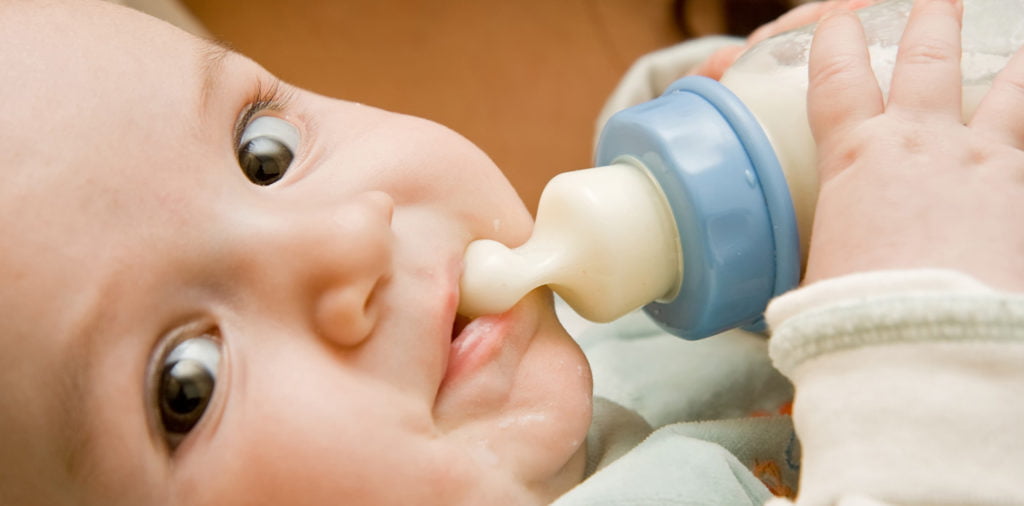As a new parent, feeding your baby can be an exciting yet daunting experience. One of the essential tools that every parent needs is a baby feeding spoon. It may seem like a simple item, but choosing the right one can make a significant difference in your baby’s feeding experience. With countless options available in the market, it can be overwhelming to choose the best one for your little one.
When it comes to choosing baby feeding spoons, there are several factors to consider, including the material, size, shape, and design. You want a spoon that is safe, easy to use, and comfortable for your baby. In this guide, we will explore the different types of baby feeding spoons available and provide you with useful tips to help you choose the best one for your baby. Whether you are a first-time parent or a seasoned pro, this guide will provide you with all the information you need to make an informed decision.
When it comes to introducing your little one to solids, choosing the right feeding spoon is crucial. Look for spoons with soft and flexible tips to protect your baby’s delicate gums. Long and angled handles make it easier to reach the bottom of the jar and reduce mess. Consider spoons with non-slip grips to ensure a steady hold. And, for convenience, opt for spoons that are dishwasher safe. With the right spoon, feeding time can be an enjoyable experience for both you and your baby.

Source: media-amazon.com
Baby Feeding Spoons for Beginners: A Comprehensive Guide
Whether you are a new parent or an experienced one, feeding your baby can be quite challenging. You want to choose the right utensils that will make feeding easy and comfortable for both you and your little one. Baby feeding spoons are an essential tool in your baby’s feeding journey. In this article, we’ll guide you on how to choose the best baby feeding spoons for beginners.
Types of Baby Feeding Spoons
There are different types of baby feeding spoons available in the market. The most popular ones are silicone spoons, plastic spoons, and metal spoons.
Silicone spoons are a popular choice because they are soft and gentle on your baby’s tender gums. They are also easy to clean and dishwasher safe. Plastic spoons are lightweight and come in different colors, making them attractive to babies. However, it is essential to choose BPA-free spoons to avoid any harmful chemicals. Metal spoons are durable and long-lasting, but they can be harsh on your baby’s mouth and teeth.
When choosing a spoon, consider your baby’s age and stage of development. For newborns, smaller spoons with shallow bowls are ideal, while older babies can use larger spoons with deeper bowls.
Benefits of Baby Feeding Spoons
Baby feeding spoons have several benefits. First, they allow you to control the amount of food your baby eats, promoting healthy eating habits. Second, they are designed to fit your baby’s mouth, making feeding comfortable and easy. Third, baby feeding spoons are durable and can withstand constant use and cleaning.
Features to Look for in Baby Feeding Spoons
When choosing baby feeding spoons, there are specific features you should look for. Firstly, the spoon should be made of safe and non-toxic materials. Secondly, it should be easy to clean and dishwasher safe. Thirdly, the spoon should have a soft and flexible tip to prevent hurting your baby’s gums. Lastly, the spoon should be easy to hold and grip, making feeding effortless for both you and your baby.
Baby Feeding Spoon Vs Adult Spoon
Using an adult spoon to feed your baby is not recommended. Adult spoons are too big for your baby’s mouth, making feeding uncomfortable and challenging. They also don’t have the gentle and soft material that baby spoons have, which can hurt your baby’s delicate gums.
Baby feeding spoons are specially designed to fit your baby’s mouth and make feeding easy and comfortable. They are also made of soft and flexible materials that are gentle on your baby’s gums, ensuring a pleasant feeding experience.
Conclusion
In conclusion, baby feeding spoons are an essential tool in your baby’s feeding journey. When choosing a baby feeding spoon, consider your baby’s age and stage of development, and look for spoons with safe and non-toxic materials, easy to clean, soft and flexible tip, and easy to grip. Avoid using adult spoons to feed your baby as they can be uncomfortable and harmful to your little one’s delicate gums. Invest in a good quality baby feeding spoon to ensure a pleasant and comfortable feeding experience for both you and your baby.
Frequently Asked Questions
Here are some common questions and answers about baby feeding spoons for beginners.
What should I look for in a baby feeding spoon?
When choosing a baby feeding spoon, it’s important to look for one that is specifically designed for babies. This means that it should have a small and shallow spoon head that is easy for a baby to take food from. It should also have a soft and flexible tip that won’t hurt the baby’s gums.
Additionally, you may want to look for a spoon with a long handle that is easy for you to hold and maneuver. Some spoons also come with non-slip handles to make them easier to grip.
How often should I replace my baby’s feeding spoon?
It’s a good idea to replace your baby’s feeding spoon every few months, or as soon as you notice any signs of wear and tear. This is because constant use can cause the spoon to become worn down or damaged, which can make it less effective at feeding your baby.
Additionally, if your baby has been sick or has had any mouth or throat infections, it’s important to replace their feeding spoon to prevent the spread of germs.
Should I use a metal or plastic spoon for feeding my baby?
When it comes to choosing between a metal or plastic spoon for feeding your baby, it’s generally best to go with a plastic spoon. This is because plastic spoons are softer and more gentle on a baby’s gums than metal spoons.
Additionally, plastic spoons are less likely to cause any harm or injury if your baby accidentally bites down too hard on the spoon. However, if you do choose to use a metal spoon, make sure that it is made from a non-toxic material and that it has a soft, rounded tip.
How can I encourage my baby to eat from a spoon?
If your baby is new to eating solid foods from a spoon, it can take some time for them to get used to it. To encourage your baby to eat from a spoon, start by offering small amounts of food on the spoon and gently placing it in your baby’s mouth.
You can also try making funny faces or silly noises to distract your baby and make the feeding experience more enjoyable. It may take some patience and practice, but eventually your baby will get the hang of eating from a spoon.
Can I use the same spoon for different types of food?
While it may be tempting to use the same spoon for different types of food, it’s generally not a good idea. This is because different types of food may contain different bacteria or germs, which can be transferred from one food to another.
To prevent cross-contamination, it’s best to use a separate spoon for each type of food. You can also wash the spoon thoroughly between feedings to ensure that it is clean and free from any harmful bacteria or germs.


Source: agoramedia.com
Feeding Baby with Spoon: Tips on how to do spoon feeding well and the best baby spoon for your baby.
As a professional writer, I understand the importance of providing the best possible start for our little ones. When it comes to feeding, the right utensils can make a significant difference. That’s why we can’t overlook the importance of baby feeding spoons for beginners.
Choosing the right feeding spoon can be a daunting task, especially for new parents. However, with the right information, it can be an enjoyable experience. From soft silicone tips to ergonomic designs, there are endless options to choose from. Remember, the feeding spoon you choose should be gentle on your baby’s delicate gums and teeth, easy to grip, and easy to clean. With the right spoon, you can make feeding time a fun and enjoyable experience for both you and your little one. So, take your time, do your research, and choose the perfect spoon that fits your baby’s needs.



